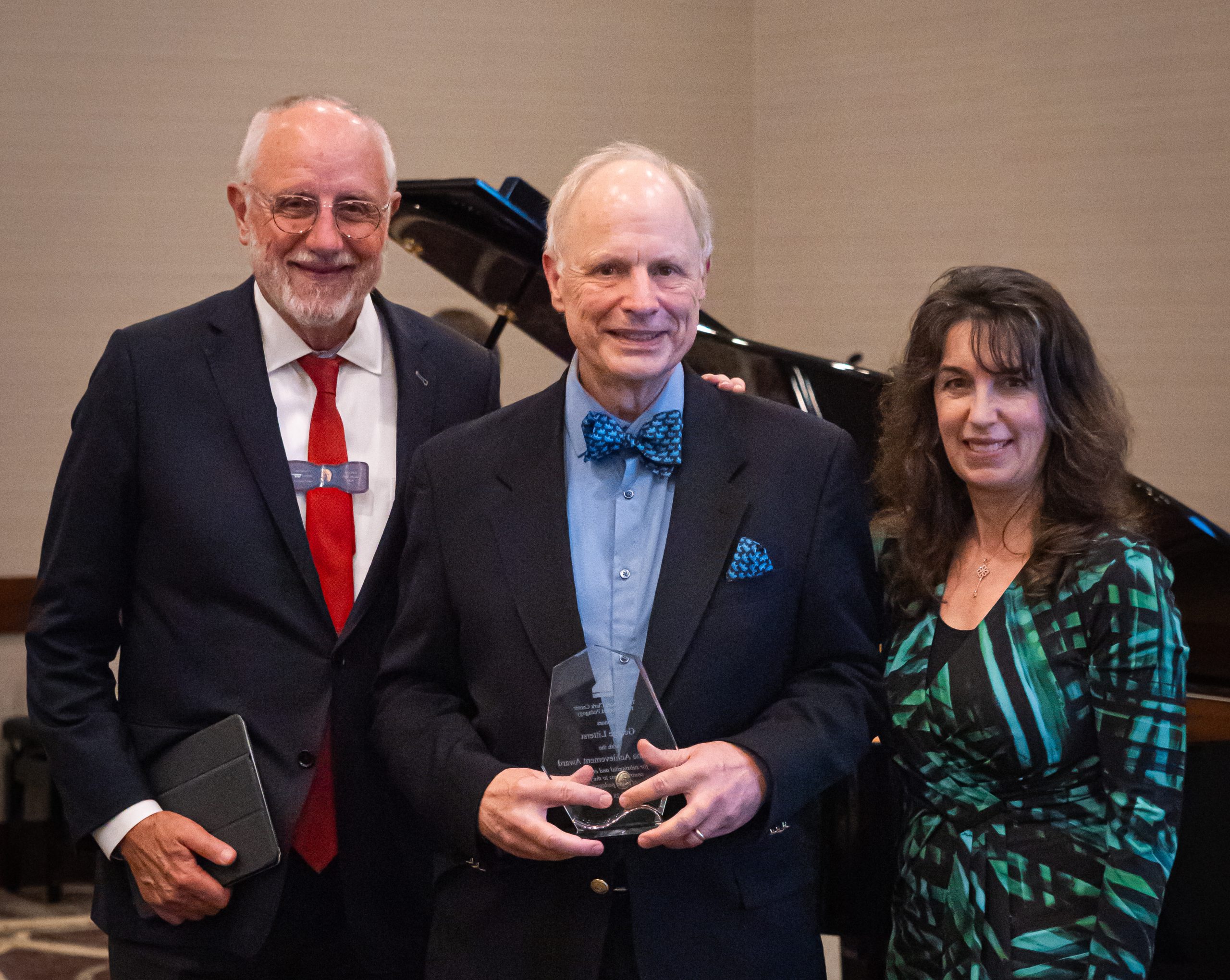To celebrate the latest episode of the Piano Inspires Podcast featuring George Litterst, we are sharing an excerpted transcript of his conversation with Shana Kirk. Want to learn more about Litterst? Check out the latest installment of the Piano Inspires Podcast. To learn more, visit pianoinspires.com. Listen to our latest episode with Litterst on Apple Podcasts, Spotify, YouTube, or our website!

Shana Kirk: As I’m listening to you today and reflecting on our history as collaborators and colleagues, a few things repeat—a few themes, if you will. So our little motifs that we find over and over in the life of George Litterst are “passionate persistence;” there is another one that you kind of alluded to a little bit earlier, which was “always asking why.” So this just incredible, deep curiosity that is childlike in so many ways. We’ve had this conversation before that, you know, we sometimes train the curiosity out of children, and it’s much better if we don’t. It’s also challenging in many ways if we don’t—but endless curiosity. And then finally, a generosity, which is what you just exhibited; generosity that is always sharing the credit, and often taking way more time and way more effort than would be expected of someone who asks you a simple question, and then you find them in a corner later still hovering over two computers! So much generosity to make sure anyone who asks a question gets it answered thoroughly, sometimes a week or two later. [laughs] But always with incredible thoroughness. What’s the future of George Litterst, and not just the future of George Litterst—how are you and your work, changing the world? I’ll say another question as well to encompass that, which is: what impact is music having on the world?
George Litterst: Okay, well, there are quite a number of questions in there. I’ll first start by saying that the basic work of enabling and assisting the community of musicians to take advantage of the technologies that we currently have is really far from over. It’s true that because of the pandemic, people had to suddenly start doing things that they didn’t do before and got out of their comfort zone, and got used to making better use of computers and things like that. But I think that their use has been still rather narrowly focused and we have a long path to go still to connect teaching to what’s actually happening when you’re playing the instrument, to the learning process. All of which is to say that the things that we’ve developed up to this point, I don’t think are yet fully exploited. So there’s a lot of work to be done just to evangelize what we have done to this point. A lot of my focus today is on an application that we have called SuperScore, which is an interactive platform for the delivery of sheet music in digital formats. It’s unique in the sense that the notation display itself is liquid—you can resize it and it gets literally re-engraved on the fly, which makes a big difference for the person that—one person needs to be able to have help discriminating between lines and spaces and they need big size. Somebody else is able to look at groups of notes and realize what the harmony is and what the horizontal patterns are, and they need to see more music at a time. So we do this at a publication quality and I think we’re the only ones currently who achieved that. Thanks, of course, to Frank Weinstock.
SK: Well, I should point out SuperScore is an iPad app.
GL: Yes, and it has interactivity directly from a MIDI capable instrument, much of those qualities you talked about with Home Concert [Xtreme]. What is driving me musically with that is my engagement with composers, arrangers, and publishers who produce the content because it’s not just the technology by itself that’s worth anything. It’s how does it fit into people’s creative lives, and it’s a vehicle for putting forward content. And not only contemporary content, but we’re using it to bring new life to works of the past and especially works that have been unjustly forgotten. One of my most interesting recent publications has been the Twelve Country Dances of Ignatius Sancho, a man who composed in the 1870s, who was born on a slave ship in the 1720s. He has a remarkable story—ends up growing up as a slave in England, finds a way to get emancipated, becomes a property owner. He’s the first person of African descent to vote in a parliamentary election and somehow, it’s not known where and how, he developed some musical skills and composed five publications of music.
SK: That element of SuperScore has been one of the most fascinating to me—just the breadth of composers, arrangers, content producers, teachers, authors, and instructional materials.
If you enjoyed this excerpt from Piano Inspires Podcast’s latest episode, listen to the entire episode with George Litterst on Apple Podcasts, Spotify, YouTube, or our website!
MORE ON GEORGE LITTERST
- MAGAZINE ARTICLE: TRIBUTES TO Frances Clark Center Lifetime Achievement Honorees Michelle Conda & George Litterst
- DISCOVERY PAGE: Hats Off to You, George! | Honoring George Litterst
- WEBINAR: Town Hall Discussion: Technology Tips with Mario Ajero, João Paolo Casarotti, Shana Kirk, George Litterst, and Stella Sick
- MAGAZINE ARTICLE: How do you use digital video in your teaching? by George Litterst, Paul Sheftel, and Mario Ajero
- WEBINAR: Town Hall Discussion: Technology with Mario Ajero, João Paulo Casarotti, Alejandro Cremaschi, Shana Kirk, George Litterst, and Stella Sick